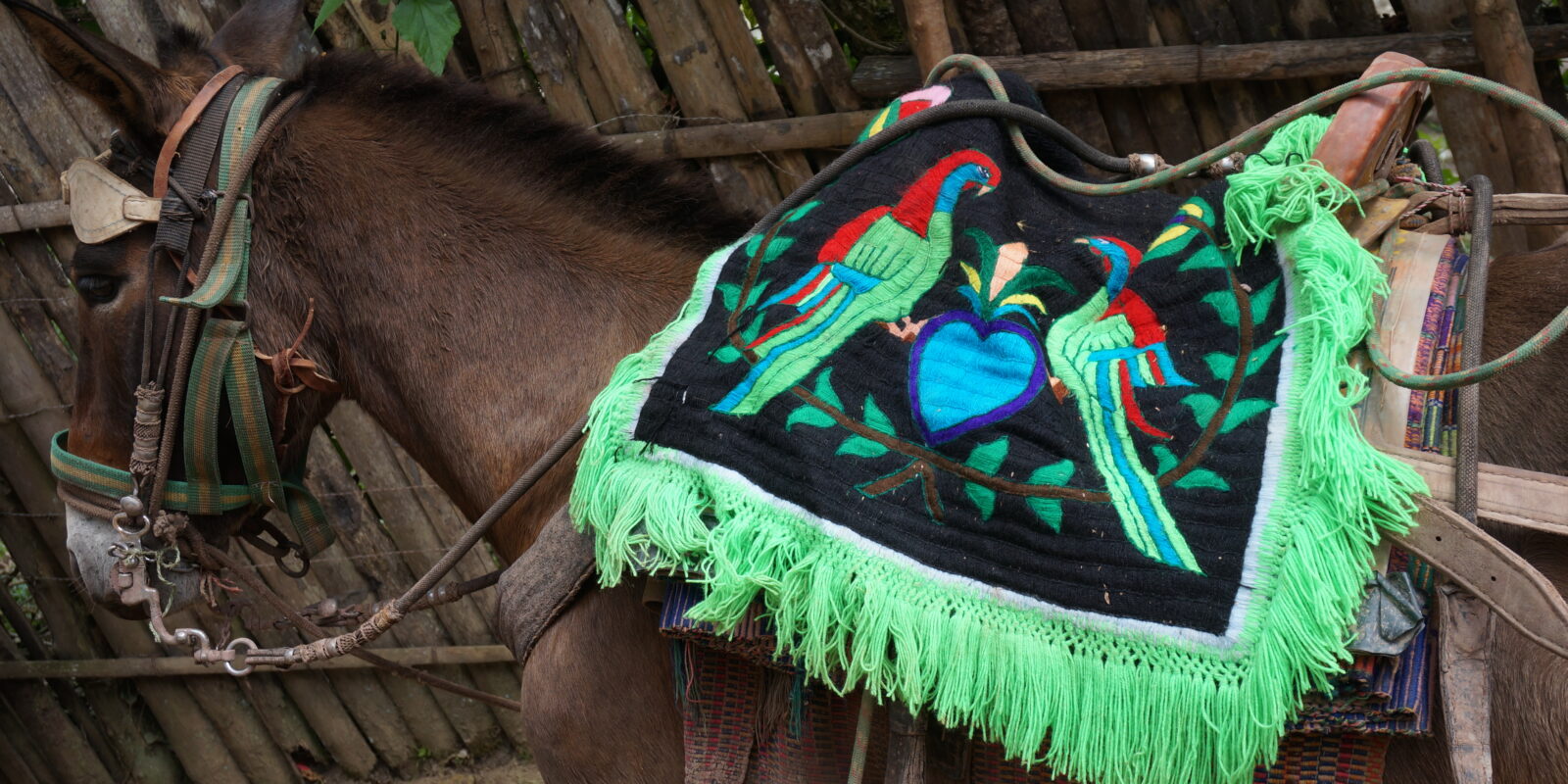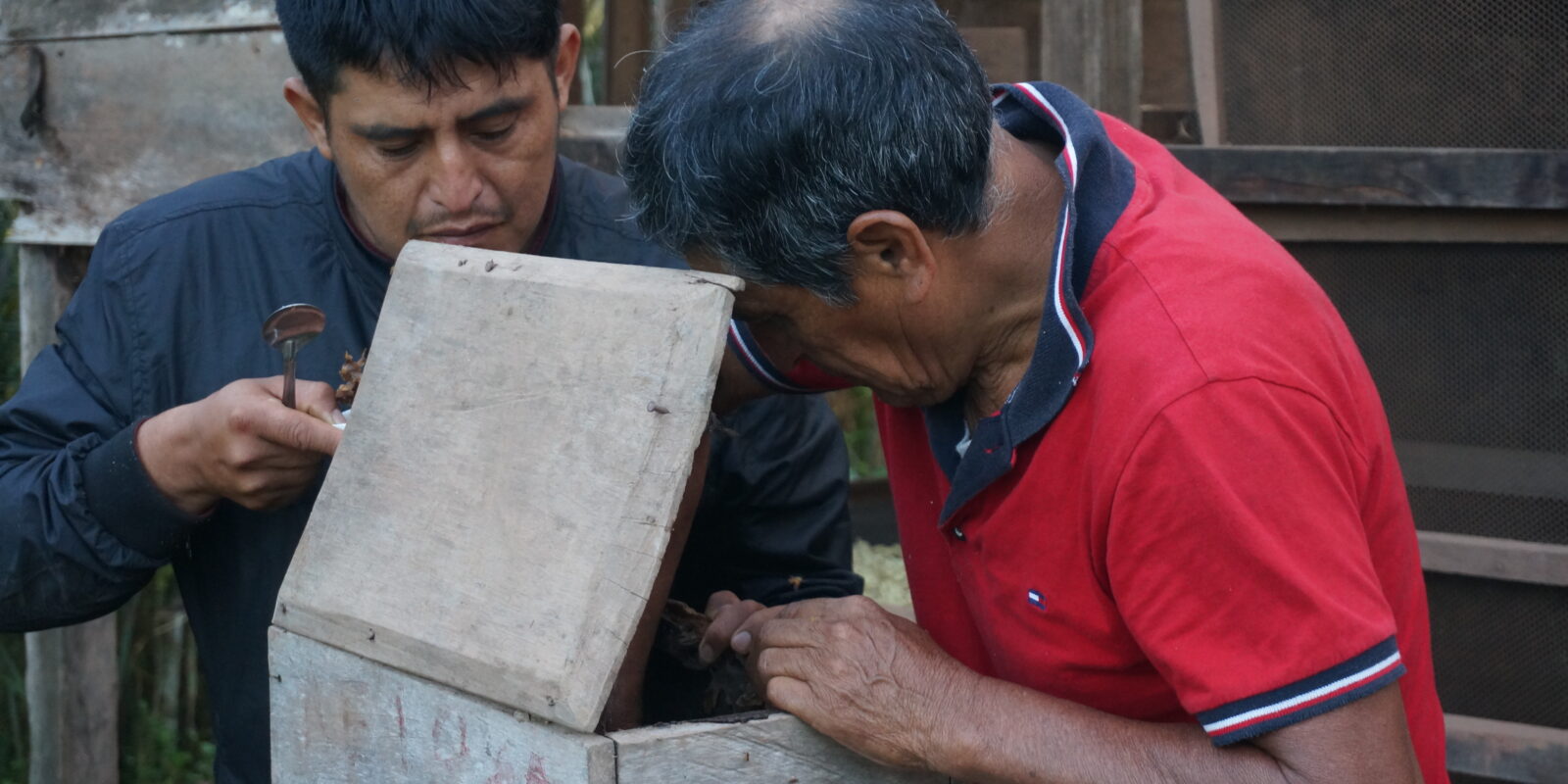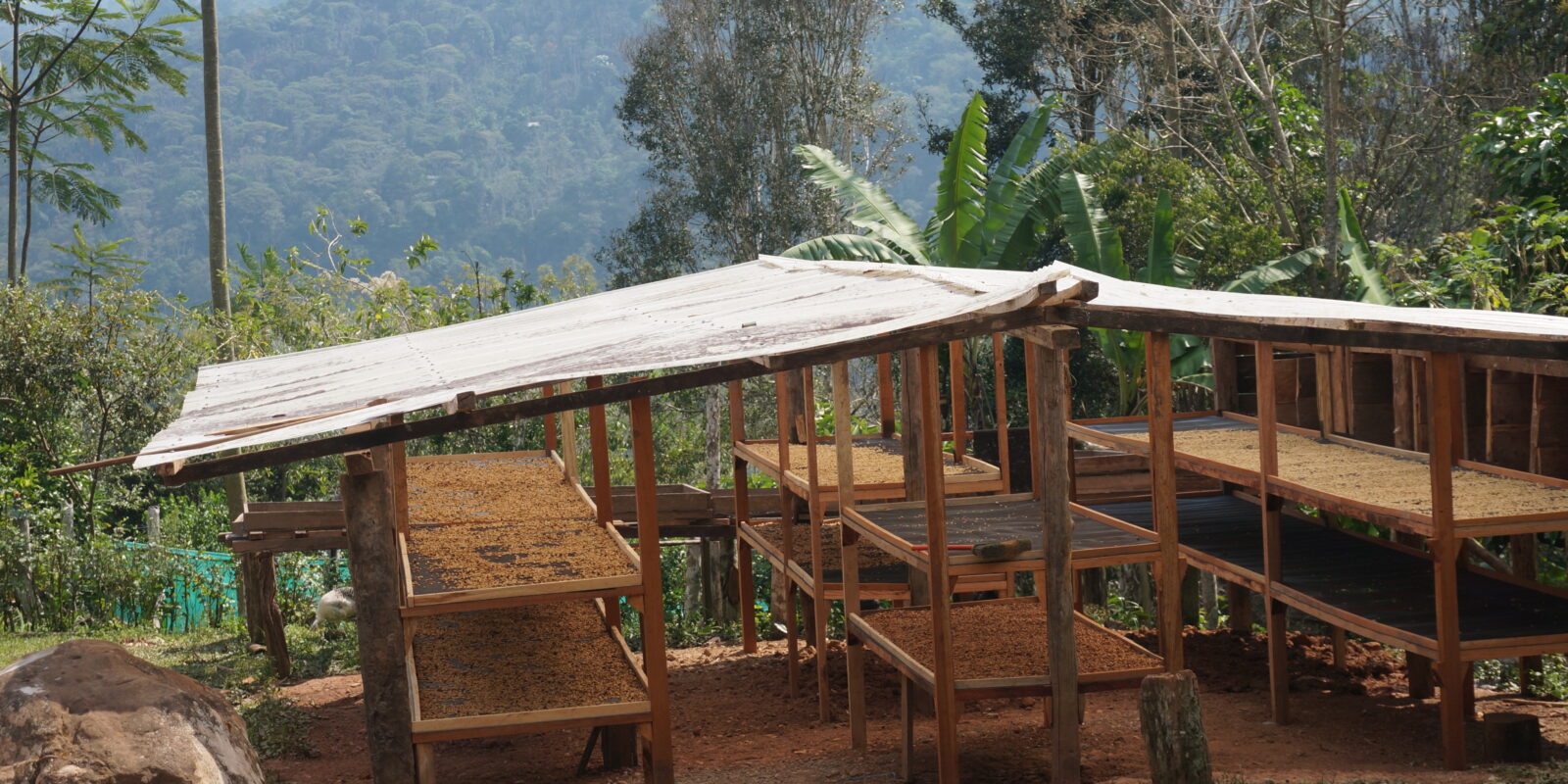MOYOBAMBA
Finca Cascadas de Cueva
Everything from one source
The culture of Peruvian coffee production has historically evolved in such a way that most coffee farmers today cultivate their coffee themselves, harvesting it by hand, depulping it on the spot, fermenting it and drying it. The dry parchment is easier to transport to the buying points, which are located in the next village or town, as the case may be. The journey is arduous and often can only be accomplished by mules. Motor vehicles cannot manage the unpaved, muddy and stony, steep roads.
Jimmy Rojas was the managing director of the Aproeco cooperative in Moyobamba for many years and tells us that the transport price from the finca to the cooperative is proportionately more expensive per kilogram of green coffee than the transport price of green coffee from Peru to Germany. But Peru is changing. Infrastructure is seen by the government as the key to better competitiveness and quality of life, which can help especially the most vulnerable part of the population.
A region in transition
The Cueva family migrated from the mountains of Cajamarca to the mountain rainforest of Moyobamba in the 1990s. There were many reasons: Escape from the terror and violence in the mountains, the disappearing natural resources in the wake of mining, and the positive incentives from politics to settle in the rainforest. In San Martin State, nearly 400,000 hectares of forest fell between 2001 and 2015 to make way for migrant populations and their supplies. Like most others, the Cuevas planted coffee to support their livelihoods.
With the new pioneers, a new mixed culture emerged, combining mountain characteristics with rainforest traditions. The process of urban development of the settlements continues to this day. There is still a lack of basic services such as water, sewage, education, electricity and sanitary facilities. In the green paradise, people suffer from malnutrition and contaminated water. The isolated communities, often only accessible on foot, are self-governed to ensure a certain degree of democracy and security in the jungle.
The Cueva Castañeda family settled in Carrizales, at the far end of the Gera River valley above Moyobamba. Initially, they grew ordinary coffee, with little knowledge, little control, and at low selling prices. When several family members joined the Aproeco cooperative in the late 2010s, much changed. With technical assistance in cultivation and processing, higher prices could be achieved. With additional help from Qoffee Qulture e.V., the family built advanced drying beds for complex fermentation and drying processes. Gover Cueva began working for the cooperative, first in the warehouse, then in technical assistance, and finally as quality manager. All of the cooperative’s coffees are couped by Gover.
Finca Cascadas de Cueva
The family finca, named after the waterfall, has been a model project in the region since at least 2018. The family buys coffee cherries from neighbors* and processes them here in a centralized way. All are invited to come and talk with Gover, who is happy to share his extensive knowledge.
Gover’s view of coffee farming is unique and aligns with permaculture values. As we walk around the finca, it feels like a Garden of Eden. We see dozens of plant and animal species, all of which Gover knows. The humus layer is a good 30cm thick, which is why our feet sink into the loose soil with every step.
From common dreams to reality
Today, Finca Cascadas de Cueva is not only a finca but also a company that exports all Peruvian microlots for us and is existential for the cumpa operations in Peru. Nostalgically we think back to how we were still dreaming together in 2016, of microlots for Germany, of joint business, of how we could successfully live together with and from coffee in the future.
At that time we were students, Gover warehouse manager of the cooperative. Today we are longtime friends and business partners. We have already been able to realize some of our plans from back then. Almost as symbols of our partnership, Moena trees grow on the finca, which we planted together in 2018 for our CO2 compensation. In their shade, coffee plants of the Bourbon variety are growing. We look forward to the years to come.



